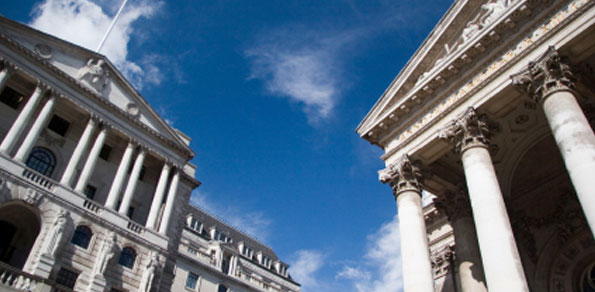There were respected economists such as Nouriel Roubini who, as early as 2005-2006, spotted the dangers the shadow banking system were potentially causing the credit markets. When the cardiac arrest came in 2007-2008, perpetuated by Bear Sterns and ultimately leading to the collapse of Lehman, economists such as Nouriel did not bask in ill timed “I told you so” smug rhetoric, instead they offered solutions and predicted a dangerous outcome if these suggestions were ignored…
The suggestion by respected economists at the time was that ‘main street’ needed rescuing in preference to Wall Street. The inference being that the systemic failure had burrowed so deeply into the banking system and our society’s use of money that only a rescue from the bottom upwards, by allowing ‘Joe Six Pack’ to write off a proportion of his debts, in preference to the banks doing the same, could help repair the damage.
The influential in the main stream media and powerful lobbying forces attempted to persuade us back in 2008 that the banks were suffering from a liquidity problem and not a solvency crisis. This proved to be the most incredibly ill judged and dangerous assumption, it was a solvency issue resulting in hasty and eye watering bail outs and rescues that will take generations to pay back. The gargantuan burden of those rescues and bail outs will rest on the bowed backs of the masses and future generations. Figures are rarely discussed in the mainstream media, however, estimates suggest that, in the UK alone, the burden for each individual could be approaching £35,000. That’s a hidden ‘shadow debt’ that will be lumped on the unaware over decades through direct and indirect taxation, or through the loss of tangible or intangible essential services – the “all in it together” ‘austerity measures’..
It was inevitable that if the insolvency issues were not handled correctly back in 2008-2009 then the next chapter in the evolving epic would be contagion by way of sovereign debt crises. Once again we have media chatter that banks such as Soc Gen or Credit Agricole have “liquidity” problems not solvency issues whilst the ‘PIIGS’ countries (to which they lend money) simply fail. The argument that Europe failed to get it’s house in order, when the USA and the UK did, does not wash, Euroland experienced it’s own quantitative easing through the ECB and Euro centric banks were rescued with similar haste and size to UK banks..
The Much vaunted and anticipated Vickers report commissioned in the UK proposes a separation of the retail and investment banking system by 2019. This ‘solution’ conveniently belongs in the same economics room 101 as the Basel agreement which, you’ve guessed it, also reaches it’s final enactment in 2019. Neither programme fails to address the real core issues whilst the tortured deliberation and procrastination suggest that decision and policy makers are attempting to buy time..again..
News this morning that Greece has a 98% chance of defaulting has come as no surprise, the chatter now is about an “orderly bankruptcy”. As to what this entails remains to be seen, presumably the onus and focus will be on media control and spin as opposed to rectifying the problems. Given that Greek two-year note yields rose 480 basis points, or 4.8 percentage points, to 74.35 percent, after reaching a record 74.88 percent earlier today the simplistic question must be asked; “how could a country ever pay back such a staggering level of interest?” The nation’s 10-year bond yields advanced 31 basis points to 23.85 percent, after reaching a record 25.01 percent. The accusation of spin above action could also be levied at Italian policy makers given their overtures to Chinese officials to act as their exclusive banker of last resort were announced yesterday ahead of Italy’s crucial bond auction this morning.
Asian markets were mixed in overnight and early morning trade. The Nikkei moved ahead to close up 0.95%, yet the Hang Seng crashed by circa 4.21% leaving the index down by 12.3% year on year. The CSI (Shanghai) also closed down by 1.12% leaving it down 7.24% year on year. The ASX closed up 0.85% whilst the NZX closed up 0.66%. The UK ftse is currently down circa 0.5% whilst the SPX daily future is suggesting an open of circa 0.8% down. Gold is down $3 an ounce and Brent crude $8 per barrel.
The euro has fallen versus the yen and dollar and remained virtually were the SNB decided it would be versus the franc at 1.200. Sterling has fallen versus the dollar and yen. The Aussie has also fallen versus the dollar, the yen and the swissy. The loonie (the Canadian dollar) has proven to be relatively secure versus the other major currencies lately, however, not as attractive as certain Scandinavian currencies are proving to be, assuming, and it’s a large assumption, that you’re prepared to pay the spread. For example an average spread of 30 pips on euro/nok (Norwegian krone) makes it a position trade forth very brave only.
Data publications later today include the USA import prices and the USA budget, the latter rates high in terms of impact. It’s a monthly report of the deficit or surplus held by the U.S. federal government. The report provides detailed information regarding federal receipts and outlays based on accounting reports of Federal entities, disbursing officers, and Federal Reserve Bank reports. A positive Monthly Budget Statement (surplus) indicates that receipts exceed outlays. Conversely, a negative figure (deficit) is indicative of government debt. Expectations (from Bloomberg) from their panel of Economists surveyed suggest a median expectation of -$132.0B, compared with last month’s figure of -$90.5B.






